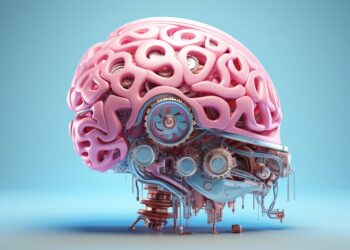Traumatic brain injuries (TBIs) are among the most dangerous outcomes of a car crash or other serious accident — not only because of the initial impact, but because their symptoms often go unnoticed. Many victims walk away believing they’re unharmed, only to discover days or weeks later that the accident has altered their memory, mood, cognitive ability, or physical health. These hidden symptoms can disrupt daily life, strain relationships, and affect long-term independence.
Early detection is critical, but the subtle nature of many TBIs makes them easy to overlook. Understanding the warning signs — and knowing how they differ from the expected stress of an accident — can help victims seek the medical and legal support they need. With the right guidance, you can protect your health, your future, and your right to recover compensation for an injury caused by someone else’s negligence.
Why Brain Injuries Often Go Undetected
Unlike broken bones or visible wounds, brain injuries don’t always produce immediate, obvious signs. The brain can sustain trauma from whiplash, sudden jolts, or violent shaking, even when the skull remains intact. Because adrenaline floods the body after a crash, victims may initially feel “fine,” only to develop symptoms once the body calms down.
Additionally, many hidden brain injury symptoms mimic common post-accident stress responses: headaches, fatigue, mood swings, or trouble sleeping. Without proper evaluation, these red flags may be dismissed as a temporary inconvenience rather than evidence of a serious neurological issue.
Cognitive Symptoms You Might Not Notice Right Away
Cognitive symptoms are often the most overlooked signs of a traumatic brain injury. These symptoms may develop gradually or fluctuate in intensity, making them harder to link directly to the accident.
Victims may experience:
- Difficulty concentrating or staying focused
- Trouble following conversations
- Memory lapses or forgetting recent events
- Slower processing speed
- Confusion when performing familiar tasks
Because these symptoms may be subtle at first, friends and family often detect them before the victim does. Cognitive changes can severely impact work performance, academic tasks, and daily decision-making, making early diagnosis crucial.
Emotional and Behavioral Changes
The brain controls emotions, mood, and personality. When it’s injured, the effects can be profound — even if there is no visible sign of harm. These emotional and behavioral changes often create challenges within families or workplaces, especially when the victim appears physically fine.
Common emotional symptoms include:
- Sudden irritability or anger
- Anxiety or panic attacks
- Increased sensitivity to stress
- Depression or withdrawal
- Uncharacteristic impulsivity
- Mood swings without clear triggers
These shifts may feel confusing or overwhelming. Loved ones may misinterpret them as stubbornness or intentional behavior, when in reality, they signal underlying brain trauma that needs medical attention.
Physical Symptoms That Aren’t Always Obvious
Not all TBIs cause immediate pain. Some physical symptoms develop slowly and intensify over time, especially in mild to moderate traumatic brain injuries.
Physical signs to watch for include:
- Persistent headaches or new migraines
- Dizziness or balance problems
- Blurred or double vision
- Ringing in the ears
- Nausea or vomiting
- Sensitivity to light and noise
These symptoms may come and go, leading many patients to assume they’re unrelated to the accident. However, ignoring them can delay treatment and increase the risk of long-term complications.
Sleep Disturbances and Fatigue
One especially overlooked category of brain injury symptoms involves sleep. TBIs can alter the brain’s natural sleep-wake cycle, leaving victims feeling exhausted even after a full night’s rest.
These disturbances may include:
- Insomnia or difficulty falling asleep
- Oversleeping or sleeping at unusual times
- Extreme daytime fatigue
- Restless or fragmented sleep
Fatigue can worsen every other symptom, making cognitive, emotional, and physical issues more difficult to manage. Sleep disruptions are a serious sign that the brain is struggling to heal after trauma.
Delayed-Onset Symptoms: Days or Weeks Later
Many brain injury symptoms don’t appear immediately. Swelling, bleeding, or chemical changes within the brain can take time to develop. Victims who initially decline medical treatment often find themselves hospitalized days later when symptoms suddenly intensify.
Delayed-onset symptoms may include:
- Worsening headaches
- Slurred speech
- Loss of coordination
- Seizures
- Difficulty waking up
- Dramatic mood changes
- Memory loss
Any sudden neurological changes should be treated as a medical emergency. Delayed symptoms often indicate more serious injuries such as brain bleeds or increased intracranial pressure.
Why Immediate Medical Care Matters
Prompt medical evaluation is essential after any head trauma — even if symptoms seem mild or nonexistent. Imaging tests such as CT scans or MRIs can reveal internal damage, swelling, or bleeding that may not be visible externally. Early diagnosis improves treatment outcomes and helps prevent long-term neurological damage.

From a legal standpoint, timely medical documentation creates a clear link between the accident and the injury. This connection is critical for proving your case and recovering compensation for your medical bills, lost wages, and long-term care needs.
How Brain Injuries Influence Your Personal Injury Claim
Brain injuries are among the most complex and costly conditions in personal injury law. Victims often require extensive medical care, cognitive therapy, neurological evaluations, and long-term monitoring. Because TBIs may impair a person’s ability to work, communicate, or function independently, the financial impact can be life-altering.
Insurance companies often attempt to minimize TBI claims, arguing that symptoms are unrelated, exaggerated, or part of a prior condition. Thorough documentation, expert medical testimony, and legal representation help counter these tactics. A strong case demonstrates not only the presence of brain trauma but its impact on the victim’s daily life, earning capacity, and emotional well-being.
Recognizing the Invisible Impact
Traumatic brain injuries are often invisible to the outside world, but they can reshape every aspect of a person’s life. Understanding the hidden symptoms — and seeking help early — is the first step toward recovery. No one should ignore the warning signs or struggle alone after an accident.
With proper medical care and legal support, victims can protect their health, assert their rights, and pursue the compensation they need to move forward. Recognizing that even “mild” TBIs can have serious consequences ensures that every victim receives the care, respect, and justice they deserve.














Discussion about this post